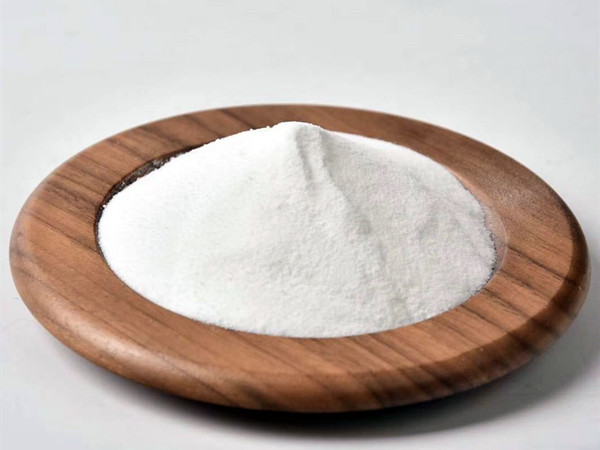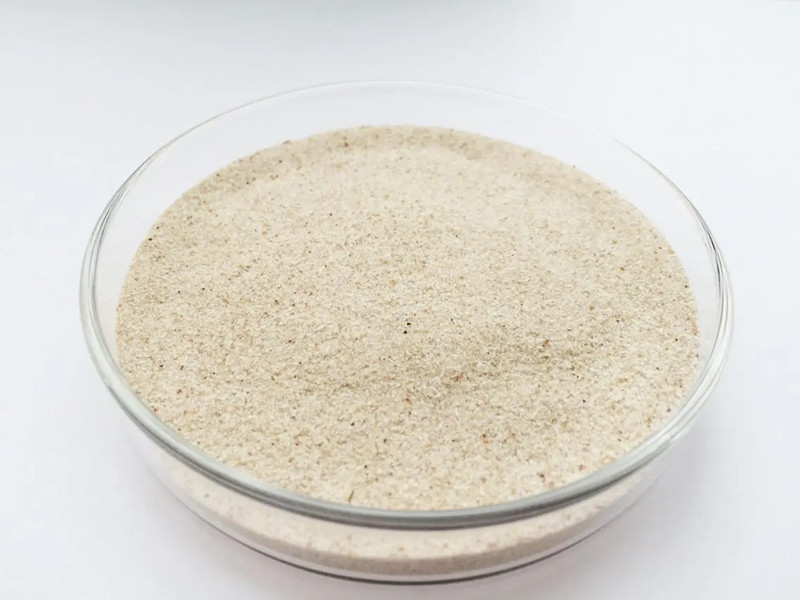Inulin vs Psyllium Husk Powder: Which is Better for Dogs?
In today’s world, pet owners are becoming increasingly conscious of their furry friends’ dietary needs. Two popular supplements often used to aid canine health are inulin and psyllium husk powder. But generate a lot of questions are inulin and psyllium husk powder. Both can be valuable sources of fiber for dogs, but they have some key differences in terms of their sources, properties, and potential benefits. Let’s take a closer look at inulin and psyllium to determine which might be the better choice for your canine companion.
What is Inulin?

Prebiotic Inulin
Inulin extract is a type of dietary fiber found naturally in many plants, including wheat, onions, bananas, and chicory root. It’s composed of fructose molecules and classified as a prebiotic, meaning it nourishes the beneficial bacteria already present in the gut microbiome. Inulin is known for its beneficial effects on gut health. These probiotic bacteria then ferment the inulin, producing short-chain fatty acids that provide energy for the cells lining the colon.
In dogs, inulin can aid in digestion and promote overall gut health. Its prebiotic effects can promote a healthier gut microbiome and improved digestion. Inulin has also been shown to increase mineral absorption, as well as boost immune function by stimulating the production of antibodies and immune cells. Some studies suggest inulin may help dogs maintain healthy blood sugar levels too.
What is Psyllium Husk Powder?
Psyllium husk powder comes from the seeds of the Plantago ovata plant, and is another type of dietary fiber known as a soluble, viscous fiber. It’s rich in soluble fiber and is known for its ability to absorb water, it swells up and forms a gelatin-like substance in the intestines, which can provide a variety of benefits.
For dogs, psyllium is effective in promoting regular bowel movements. Like inulin, it feeds beneficial gut bacteria and appears to enhance nutrient absorption from the diet. It is most commonly used as a gentle bulk-forming laxative to alleviate constipation and promote regular bowel movements. The swelling action adds moisture to the stool and increases its bulk, allowing it to pass more easily.
Beyond its laxative effects, psyllium husk powder offers other benefits: helps with diarrhea by absorbing excess water and firming up loose stools and weight management by increasing feelings of fullness and delaying stomach emptying time.
Which Is Better for Dogs: Inulin or Psyllium?
Both inulin and psyllium husk powder offer a range of health benefits for dogs, including digestive health, weight management and blood sugar regulation. So which supplement reigns supreme for our furry friends? In truth, the “best” choice depends on your dog’s specific needs and any existing health conditions.
For dogs struggling with constipation or requiring a gentle laxative effect, psyllium husk is usually the better option. Its bulking action can soften stools and ease passage, providing relief for pups with digestive troubles. Psyllium may also be preferred for overweight dogs, as its viscous nature promotes satiety.
On the other hand, inulin is an excellent prebiotic supplement to improve gut health and digestion for dogs with no existing bowel irregularities. Its ability to stimulate probiotic bacteria provides antioxidant effects and may enhance immune function and nutrient absorption. Inulin is also lower in calories than psyllium, making it a better option for weight management in some cases.
For many dogs, a combined fiber supplement containing both inulin and psyllium could offer the best of both worlds – promoting a healthy gut microbiome while providing gentle laxative effects and satiety. Some veterinary nutritionists recommend rotating between the two, using inulin most of the time but switching to psyllium if constipation occurs.
As with any new supplement, it’s crucial to start with low doses of either inulin or psyllium for dogs and slowly increase to the recommended amount over a week or two. Typically, dosages will vary based on the dog’s size and health status.This allows the dog’s system to adjust and avoids any potential gas or bloating from suddenly increasing fiber intake. Be sure to provide plenty of fresh water as well, as fiber supplements can dehydrate dogs and cause intestinal blockages if they don’t drink enough. Consulting with a veterinarian is advisable to determine the appropriate dosage for your pet.
While generally safe, both supplements may cause side effects in some dogs. For dogs with certain medical conditions like diabetes, it’s also wise to consult your veterinarian before adding any fiber supplements. Inulin may lead to gas or bloating, especially when introduced in high doses. inulin, psyllium, and other fibers may impact the absorption of some medications or affect blood sugar levels in some cases.
Numerous case studies have highlighted the benefits of both inulin and psyllium husk powder for dogs. From improved digestion to better weight management, both inulin and psyllium husk powder have shown promise in enhancing canine health and well-being.
The choice between the two ultimately depends on your pet’s individual needs and any underlying health considerations. Consider your dog’s specific dietary needs, any existing health conditions, and consult with a veterinarian for personalized advice. By consulting with a veterinarian and carefully monitoring your dog’s response, you can make an informed decision to support their overall health and vitality.


